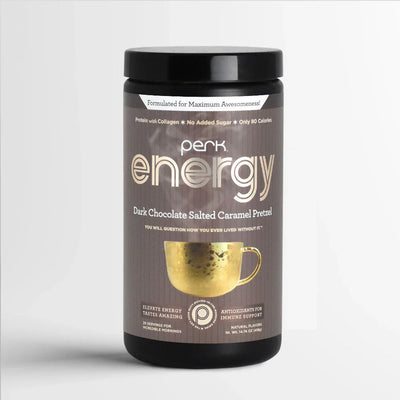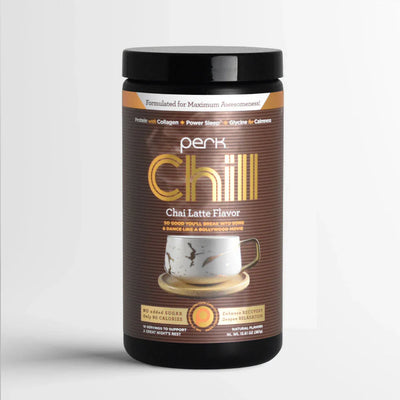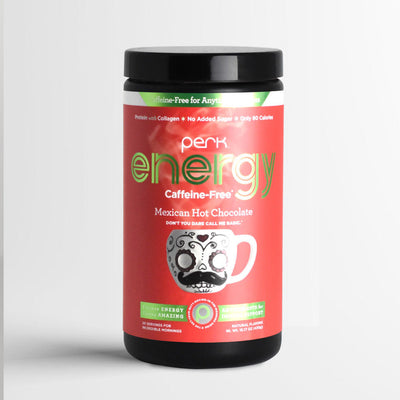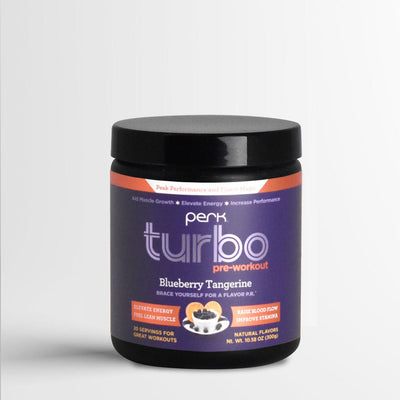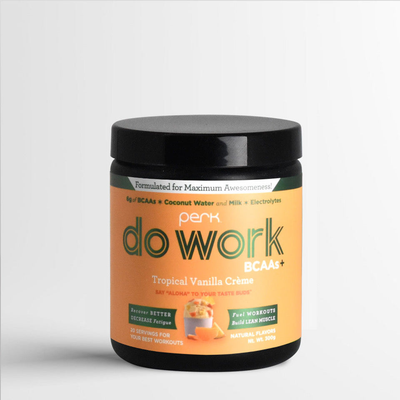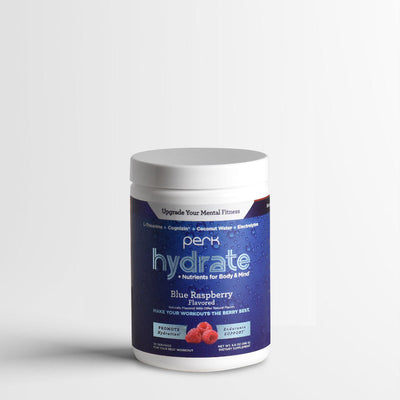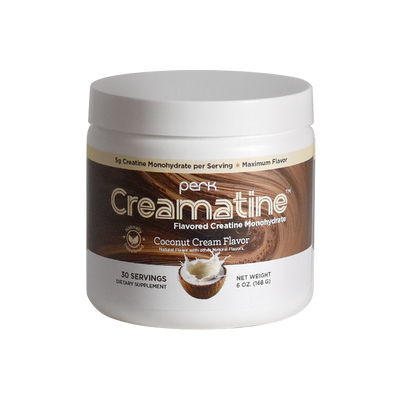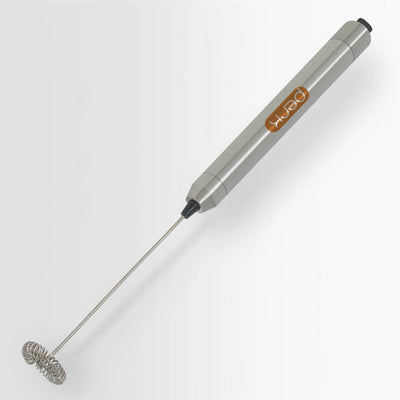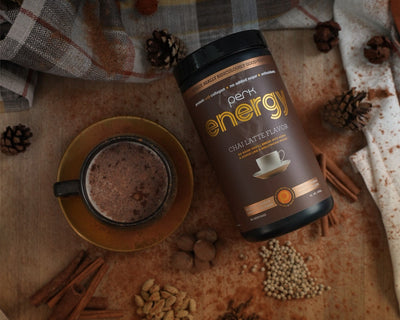NEED
Ingredient Spotlight: What is (and what isn't) EGCG?

to
KNOW
What on earth is EGCG?
Epigallocatechin gallate (EGCG) is a unique plant compound found in a variety of fruits, nuts and leaves that is most commonly associated with camellia sinensis (tea). EGCG is thought to reduce inflammation, aid weight loss, and help prevent heart and brain disease.
EGCG defined.
EGCG is a type of plant-based compound (polyphenol) that acts as a potent antioxidant1 to protect against cellular damage caused by free radicals—highly reactive particles formed in your body that can damage your cells when their numbers get too high. Eating foods with antioxidant polyphenols may help limit damage caused by free radicals. EGCG has been found to be over 100 times more effective in neutralizing free radicals than vitamin C and 25 times more powerful than vitamin E.
Additionally, research suggests that polyphenols like EGCG may reduce inflammation and prevent certain chronic conditions, including heart disease, diabetes, and some forms of cancer.
Natural Found in a wide variety of foods.
EGCG and the other catechins (antioxidants) comprise between 30-40% of the water-soluble solids in green tea and is often credited for the many health-promoting attributes associated with it. Though EGCG is predominantly found in green tea, it also is present in many other foods, such as cranberries, strawberries, blackberries, kiwis, cherries, pears, peaches, apples, avocados, pecans, pistachios, and hazelnuts. Dark chocolate and legumes offer these polyphenolic compounds as well.
EGCG may offer significant health benefits.
A wide variety of research studies indicate that EGCG provides numerous health benefits, including reduced inflammation, weight loss, and improved heart and brain health.
EGCG protects your cells through its antioxidant activity from damage associated with oxidative stress. It also may suppress the activity of pro-inflammatory chemicals2,3. Stress and inflammation are linked to a variety of chronic illnesses, including heart disease, diabetes, and cancer. These effects of EGCG are thought to be primarily responsible for its role is disease prevention.
Cardiovascular health
Research suggests that EGCG in green tea may support heart health by reducing blood pressure, cholesterol, and the accumulation of plaque in blood vessels — all major risk factors for heart disease. In an 8-week study in 33 people, taking 250 mg of EGCG daily resulted in a significant 4.5% reduction of LDL (bad) cholesterol6.
A separate study in 56 people found significant reductions in blood pressure, cholesterol, and inflammatory markers in those taking a dose of 379 mg of EGCG daily over 3 months7.
Brain health
Research suggests that EGCG may play a role in improving neurological cell function and preventing degenerative brain diseases10.
Observational human studies have found a link between a higher intake of EGCG and a reduced risk of age-related brain decline, as well as Alzheimer’s and Parkinson’s disease11. More research is needed to confirm this link.
Weight loss
EGCG may also enhance weight loss, especially when taken in conjunction with caffeine.
Some long-term research found that people who consumed about 200mg of EGCG daily had lower body fat and weight than the control group8.
Other studies have found that taking 100–460 mg of EGCG together with 80–300 mg of caffeine for at least 12 weeks is associated with significant weight loss and lower body fat9.
Promoting a state of wellness
In a study published in the British Journal of Nutrition, EGCG was found to increase energy expenditure in subjects4. Another study indicates that EGCG can improve mental focus and relaxation5.
FAQs
Is EGCG green tea?
No, EGCG is naturally occurring and abundant in green tea, but it is found in a variety of foods including strawberries, raspberries, blackberries, plums, peaches, kiwi, and avocado. It is a polyphenolic compound that has antioxidant properties that have been extensively researched for their health benefits.
Is EGCG concentrated green tea?
No. Some extracts are principally concentrations of the whole chemical structure of green tea, however EGCG is a specific polyphenolic compound found within the chemical makeup of green tea and other fruits and nuts.
How much EGCG is in Perk Energy?
150mg per serving.
What kind of extract is used to make Perk Energy?
Perk Energy uses a pure polyphenol extract. It is virtually 100% antioxidant compounds.
Footnotes:
1New insights into the mechanisms of polyphenols beyond antioxidant properties; lessons from the green tea polyphenol, epigallocatechin 3-gallate. Redox Biol. 2014 Jan 10;2:187-95. doi: 10.1016/j.redox.2013.12.022. eCollection 2014
2Green tea polyphenols as an anti-oxidant and anti-inflammatory agent for cardiovascular protection. Cardiovasc Hematol Disord Drug Targets. 2007 Jun;7(2):135-44.
3Green tea polyphenols change the profile of inflammatory cytokine release from lymphocytes of obese and lean rats and protect against oxidative damage.Int Immunopharmacol. 2015 Oct;28(2):985-96. doi: 10.1016/j.intimp.2015.08.011. Epub 2015 Aug 20.
4Effect of moderate intakes of different tea catechins and caffeine on acute measures of energy metabolism under sedentary conditions. Br J Nutr. 2009 Oct;102(8):1187-94. doi: 10.1017/S0007114509371779. Epub 2009 May 18.
5Acute neurocognitive effects of epigallocatechin gallate (EGCG).Appetite. 2012 Apr;58(2):767-70. doi: 10.1016/j.appet.2011.11.016. Epub 2011 Nov 20.
6Prospective double-blind crossover study of Camellia sinensis (green tea) in dyslipidemias. Arq Bras Cardiol. 2009 Aug;93(2):128-34.
7Green tea extract reduces blood pressure, inflammatory biomarkers, and oxidative stress and improves parameters associated with insulin resistance in obese, hypertensive patients. Nutr Res. 2012 Jun;32(6):421-7. doi: 10.1016/j.nutres.2012.05.007. Epub 2012 Jun 20.
8Green Tea Catechins and Sport Performance. Antioxidants in Sport Nutrition. Lamprecht M, editor. 2015. Show details
9Effects of green tea and its epigallocatechin (EGCG) content on body weight and fat mass in humans: a systematic review. Nutr Hosp. 2017 Jun 5;34(3):731-737. doi: 10.20960/nh.753.
10A green tea polyphenol epigallocatechin-3-gallate enhances neuroregeneration after spinal cord injury by altering levels of inflammatory cytokines. Neuropharmacology. 2017 Nov;126:213-223. doi: 10.1016/j.neuropharm.2017.09.006. Epub 2017 Sep 9.
11Neurological mechanisms of green tea polyphenols in Alzheimer's and Parkinson's diseases. J Nutr Biochem. 2004 Sep;15(9):506-16.
